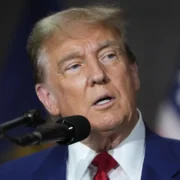The Nigeria Union of Petroleum and Natural Gas Workers (NUPENG) has warned of an imminent fuel scarcity across the country as it directed its members to halt the loading of petroleum products beginning Monday, September 8.
In a statement issued on Friday and jointly signed by its President, Williams Akporeha, and General Secretary, Afolabi Olawale, the union accused the management of Dangote Refinery of alleged anti-labour practices that threaten the livelihood of its Petroleum Tanker Drivers Branch.
NUPENG expressed outrage over the reported stance of Dangote Refinery Chairman, Aliko Dangote, that drivers recruited for the operations of its 10,000 Compressed Natural Gas (CNG) trucks would not be allowed to join any trade union.
The union described the position as “an affront on the right of association guaranteed under the 1999 Constitution” and a violation of international labour laws ratified by Nigeria.
“We call on the Nigerian Midstream & Downstream Petroleum Authority to invoke its powers under Section 32(u) & (aa) of the Petroleum Industry Act (PIA), which empowers it to promote competition, prevent abuse of dominant positions, and check restrictive business practices in the sector,” the statement read.
NUPENG further reminded the Federal Government that Nigeria is bound by the International Labour Organisation’s Convention No. 87 on Freedom of Association and Protection of the Right to Organise, which the country ratified in 1960.
“Any practice or policy by any employer that deprives workers of their right of association is an affront to the Constitution,” the union said, stressing that it would not hesitate to mobilize its members nationwide if the alleged anti-union stance of Dangote Refinery persists.
The union also called on the Federal Government, regulatory agencies, and “well-meaning Nigerians” to caution what it described as “two trillionaire businessmen” against what it termed “anti-union tyrannical attitudes.”
NUPENG maintained it was ready to fight within the framework of the law to defend the rights of its members.
























Comments